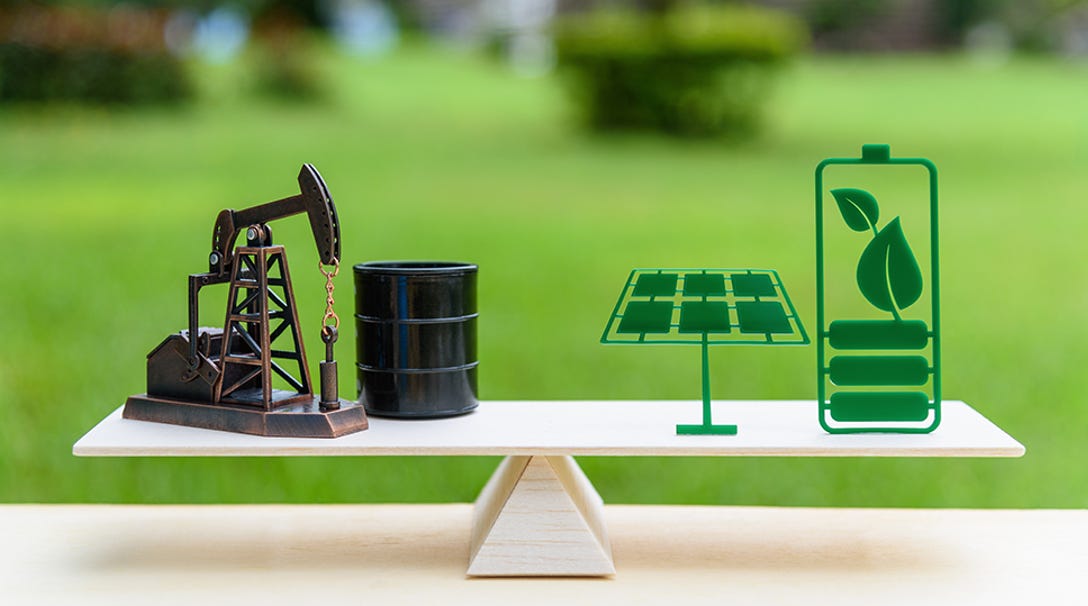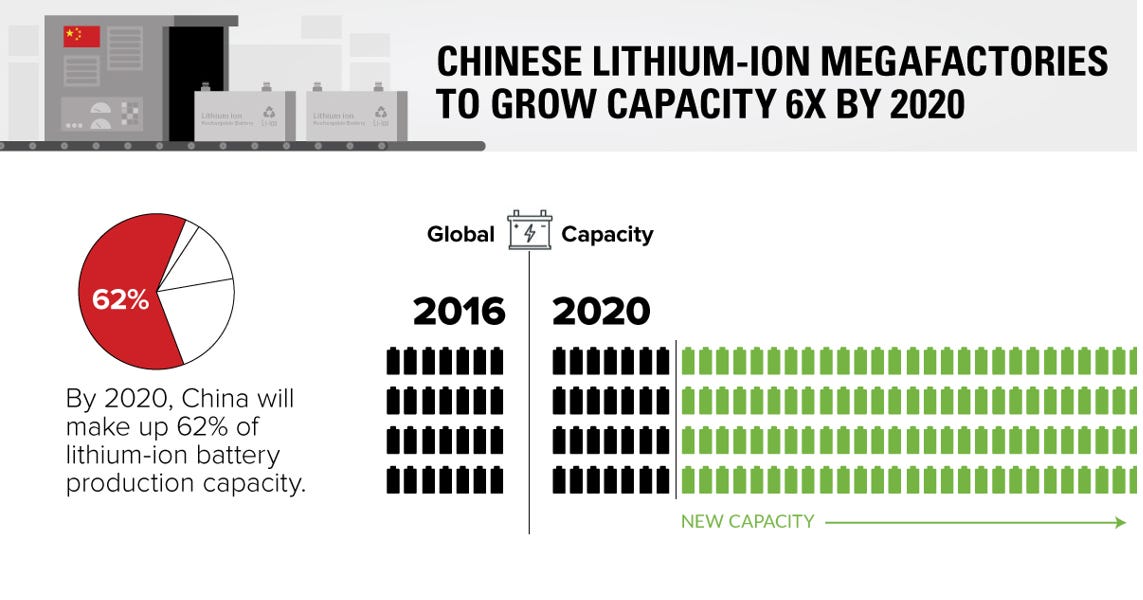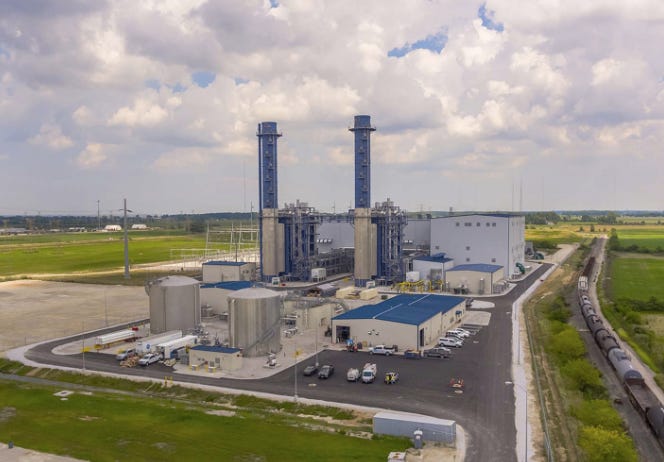The Deep Future of Energy, Part 4
The Battery and Binary Problems
In the first three parts of the Deep Future of Energy series, we talked about the way the grid currently works, evaluated grid-scale generation and storage techniques, and finally (spoilers!) postulated a way to have a zero-carbon grid of the future based on planet-spanning HVDC energy superhighways and stupendous amounts of batteries.
This article is sort of the caveat article of the series. There is one very large negative about moving to a battery-rich future grid. And even more importantly, we need to evaluate the dangers of binary thinking when it comes to climate change.
Batteries Make You Beholden
Batteries are fantastic in that they:
Take in and give out energy with very few losses (less than 12% total losses)
Can store energy for a long time in a safe way
Can take in and give out energy in amounts adjustable on millisecond timeframes
Last for at least a decade, and probably a few decades
There are, of course, some technical negatives, like cost and how carbon-intensive and energy-intensive they are to manufacture. But those are true for almost every large-scale technology.
But the biggest negative is geopolitical. The ability to make batteries is not equally distributed across the globe. The US makes 8% of all lithium-ion batteries, but China makes 76%.
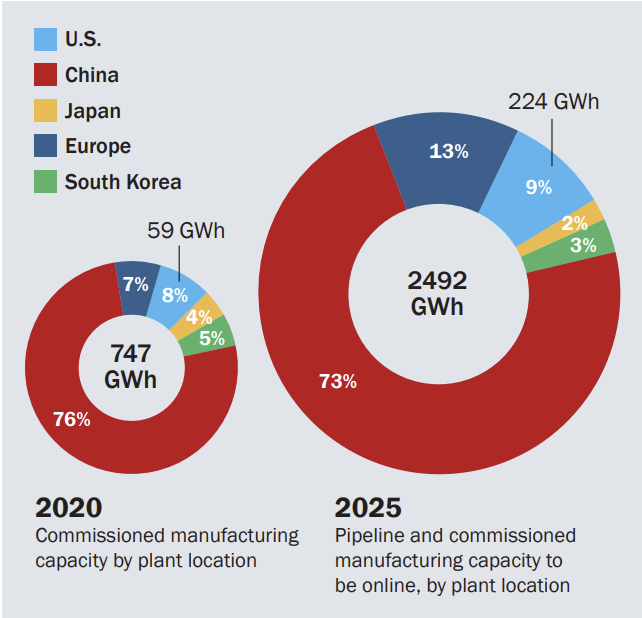
And even with the US and European battery production ready to quadruple in a few years, this will only barely reduce the Chinese dominance, as their production will be growing almost as fast percentage-wise, and many times faster in terms of added batteries produced per year.
The lithium and nickel used in the batteries are not even a major problem. As described in Deep Future of Energy Part 2, nickel is found in a decent number of locations, but lithium is everywhere. Australia and Chile have some of the most economical deposits, but Nevada and Montana and many desert areas have decently available lithium just sitting on the ground ready to be bulldozed up and turned into batteries.
The reason China has and will have battery dominance is that scaling up battery production is capital-intensive, technology-intensive, and labor-intensive. And China has a lot of capital, tech, and cheap labor. Compared to the US and Europe, that labor is not about to stop being cheap. There is a virtuous cycle of using the profits from battery sales to build larger and more efficient battery factories. The Chinese government has also been heavily subsidizing this industry, to the tune of around $60-$100 Billion in domestic electric vehicle subsidies. By massively (but somewhat artificially) stimulating internal demand, it drives investment into battery manufacturing by basically ensuring the success of whoever can make the most batteries. At the same time, US regulations make new mines and processing center take 10 years to be built and European activists just prevented Europe’s largest lithium mine from being created.
(I am not taking a position on whether the US regulations or European protests are good or bad. But they do play an important role in the calculus here. Everything has trade-offs.)
China has also made sure that it has much of the world’s lithium processing (80%) and battery component manufacturing (60%) under its roof.
The base assumption is that the large majority of the world’s batteries will be made in China for the next few decades. This is a major geopolitical risk, in that it is very likely that the grid of the future and the vehicles of the future will require immense amounts of batteries. And as we discussed in Part 1, the intermittency of solar and wind are immense problems for grid stability that really only batteries and natural gas plants can solve. So we will need to buy a LOT of batteries. And most of those will need to come from China.
This is bad, because those batteries will be an energy necessity, and a growing and ongoing one. This will hand China humongous leverage over the rest of the world.
Yes, Batteries Are the New Oil.
And just like OPEC drew the US into its regional wars for decades and distorted US policy into a grotesque and monstrous betrayal of what most Americans hold dear, so will the same dependence on China draw the US and Europe into morally compromising positions involving the Chinese Communist Party.
This blog is not political, but I think most of us can agree that a world held under the sway of hyper-authoritarians is a bad thing. Uighur prison camps, forced organ “donations” of political prisoners, and widespread persecutions of speech, religion, and the press are not “values” that should have any sway on the world stage.
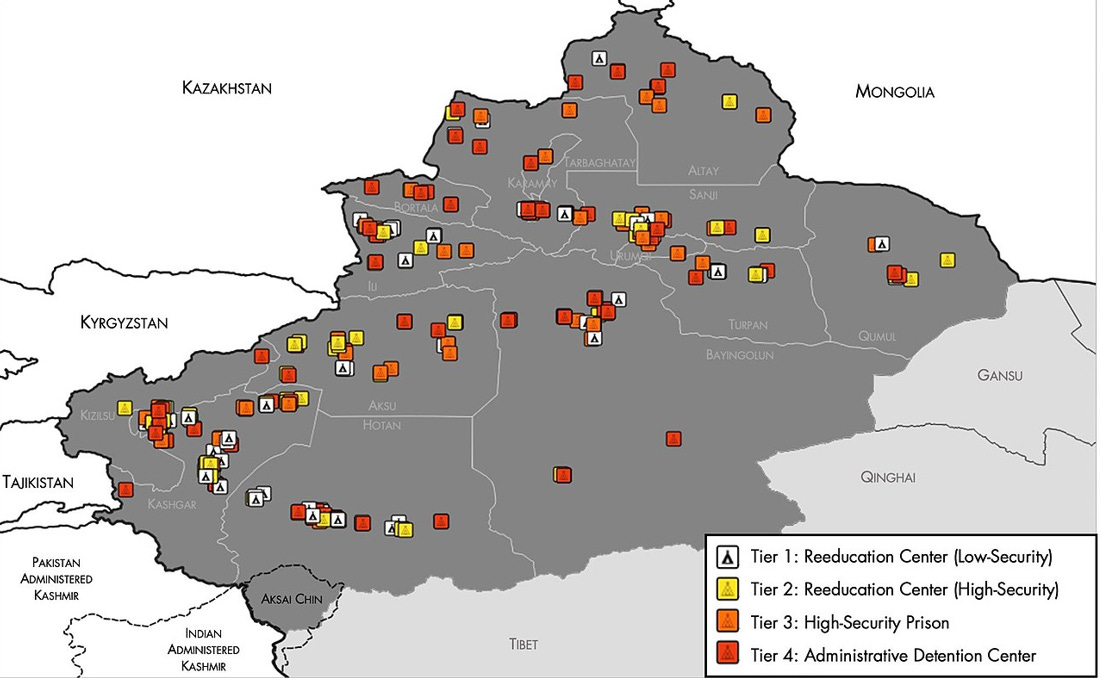
It is a very bad thing if China has a hold on the rest of the battery-hungry world because it can make more batteries and cheaper batteries than anyone else. This must be avoided at almost any cost.
Avoiding Chinese Battery Hegemony
The non-Chinese world really does have plenty of raw materials and know-how to make its own batteries.
What they don’t have is time.
The US and Europe need time in order to be able to create their own domestic (or friendlier-sourced) batteries. How can we give ourselves more time?
We can decide that it’s ok to us natural gas as a reasonable bridge toward a fossil-free future. Natural gas emits 1/3 the carbon per unit of energy that coal does, and burns cleaner that oil. Natural gas plants have very small physical footprints per gigawatt of energy production, and are not currently under the crippling regulatory framework that prevents nuclear energy from growing in the US.
If the US and Europe decide that natural gas is an acceptable and reasonable bridge to a greener future, then they have all the means they need to give themselves the breathing room to build out their battery manufacturing infrastructures and/or relationships.
But I can already hear some people bringing up the objection that this is a step in the wrong direction. Some would say that the climate emergency is so dire that even being under China’s sway for decades is preferable if it reduces our carbon footprint.
The Climate Binary
This is the perfect example of the Climate Binary mindset. Anything and everything that can be done must be done, no matter the consequences.
No. This is illogical and wrong. It may be politically correct, but it is morally and factually wrong.
Anthropogenic Global Warming is a real thing, and it must be dealt with. There will be consequences to the seas rising 3-4mm a year this century. There will be even bigger consequences to ocean acidification as higher levels of CO₂ are dissolved into the oceans, especially for coral reefs. Weather patterns will probably shift somewhat, causing more rain in some areas and less in others.
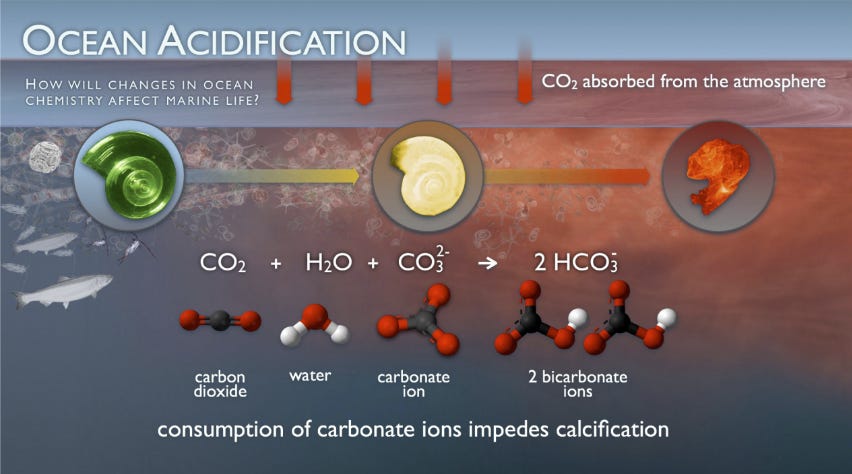
But the consequences are not infinite.
And because the consequences are not infinite, the trade-offs involving climate change are finite and must be reasonable as well.
It is not worth crippling our economy or making us beholden to the Chinese Communist Party to prevent 4 inches of sea level rise. There are tradeoffs.
We must stop thinking of climate change as some infinite boogeyman. It is a tradeoff. We have to stop it, but there are ways to stop it that will kill many, many people, and impoverish billions, and empower authoritarian regimes.
Natural gas is not the greenest energy. It’s much greener than coal and oil, but it emits CO₂. But depending on it for a few more decades is better than having constant grid failures or economic stagnation or Chinese hegemony.
And there are other tradeoffs as well. We have to start discussing these tradeoffs like adults. Here is a question almost no one is asking: Are a few thousand miles of two foot tall seawalls worth lifting the last billion humans out of extreme poverty, saving millions of children’s lives? This should be discussed.
Now, of course I would like to have my cake and eat it, too. If we can find a new technological path that electrifies all of Africa reliably without increasing carbon emissions, then let’s do it! But if that path doesn’t exist, I still want to burn fossil fuels to give 100 million African children a better future, even if that means we get an extra 4 inches of sea level rise.
Because honestly, the sea rises and falls about 18 inches twice every day everywhere around the globe. I am much more worried about ocean acidification than sea level rise. We aren’t going to see Times Square under 8 feet of water. That was a lie.
It’s time to grow up about climate change. We need to talk real, honest tradeoffs — not climate scare tactics. Climate Denialism and Climate Hyper-Alarmism are both incorrect. The long term answer is a carbon-free energy grid. But we have to get there in ways that accurately weigh all the tradeoffs.
Let’s think like Engineers, not Politicians.


